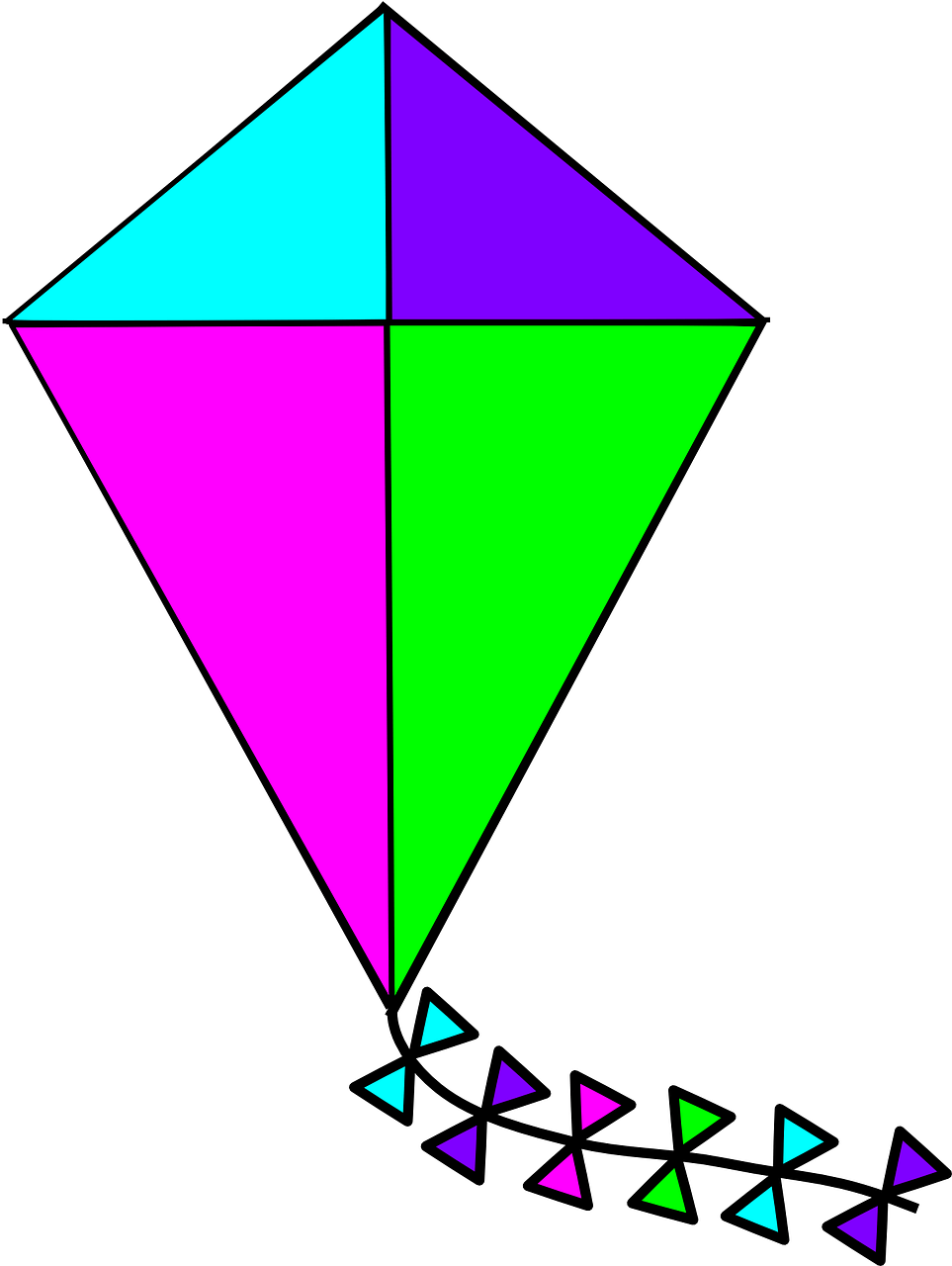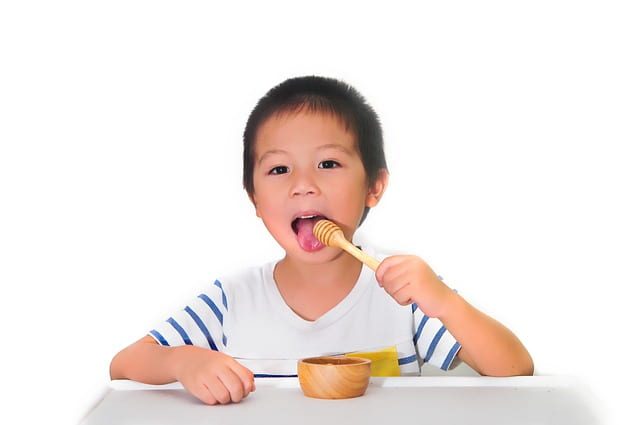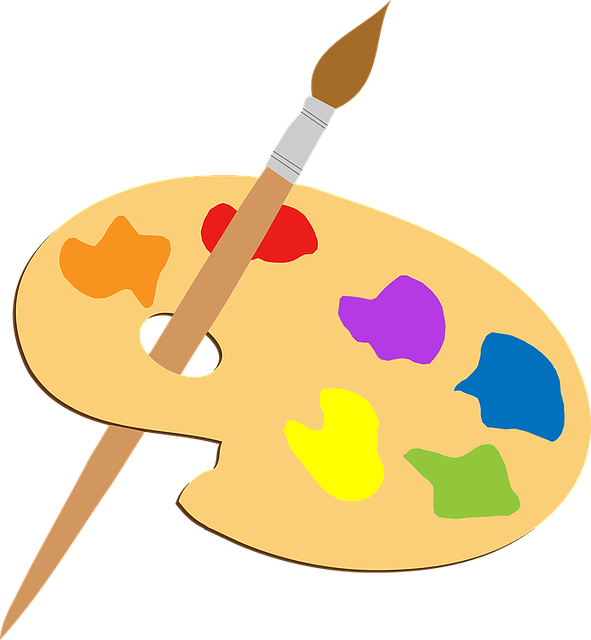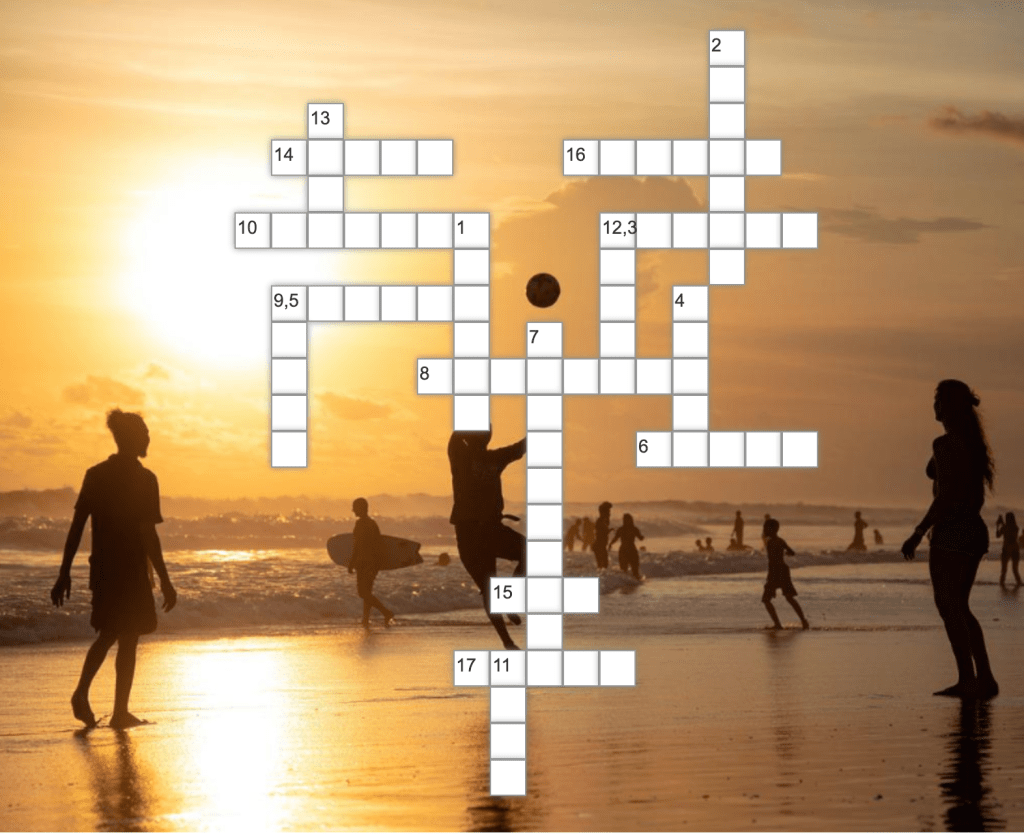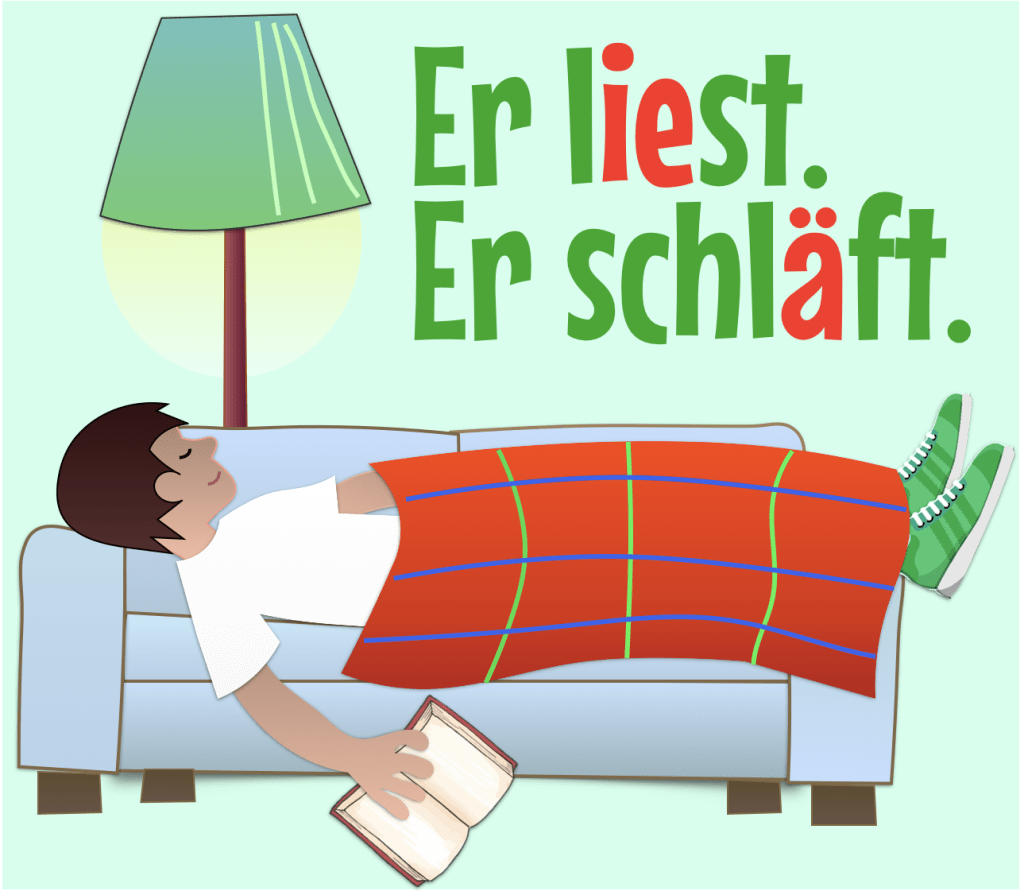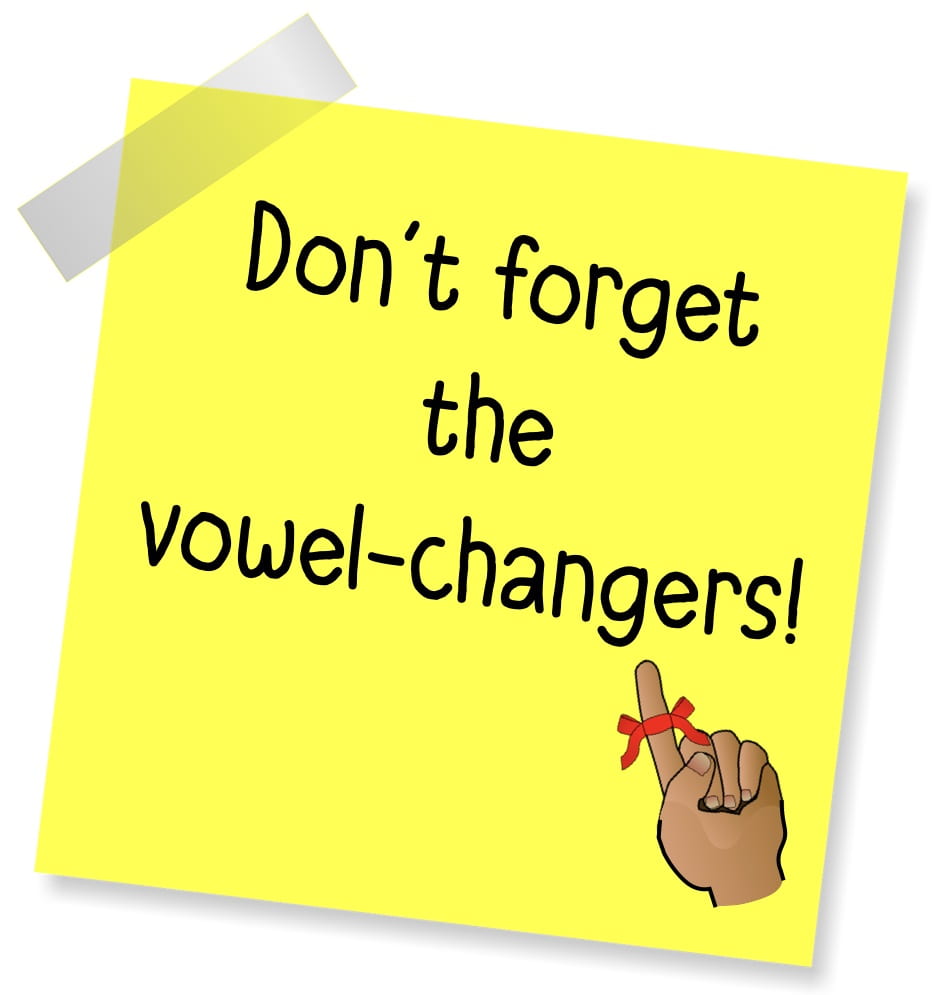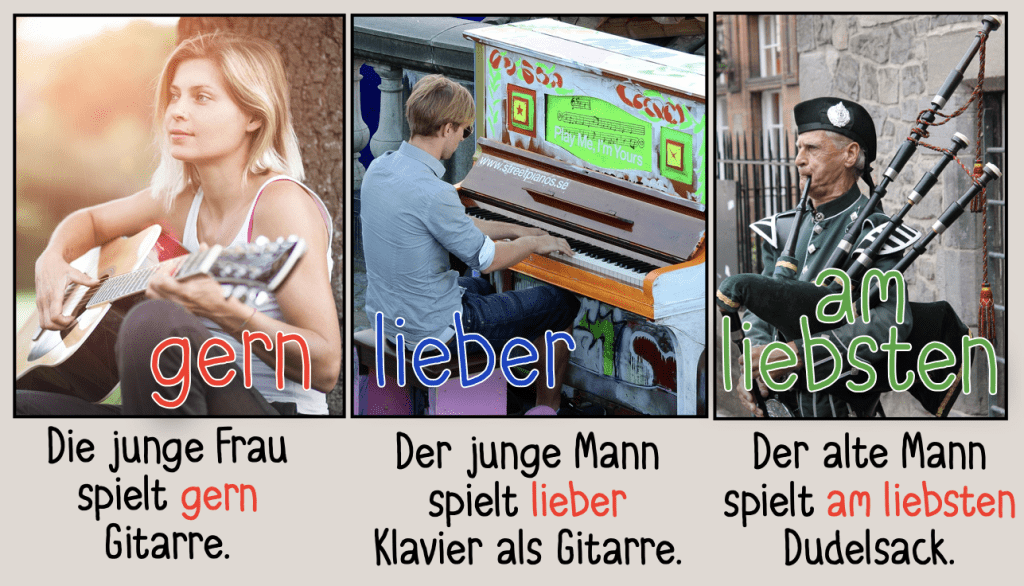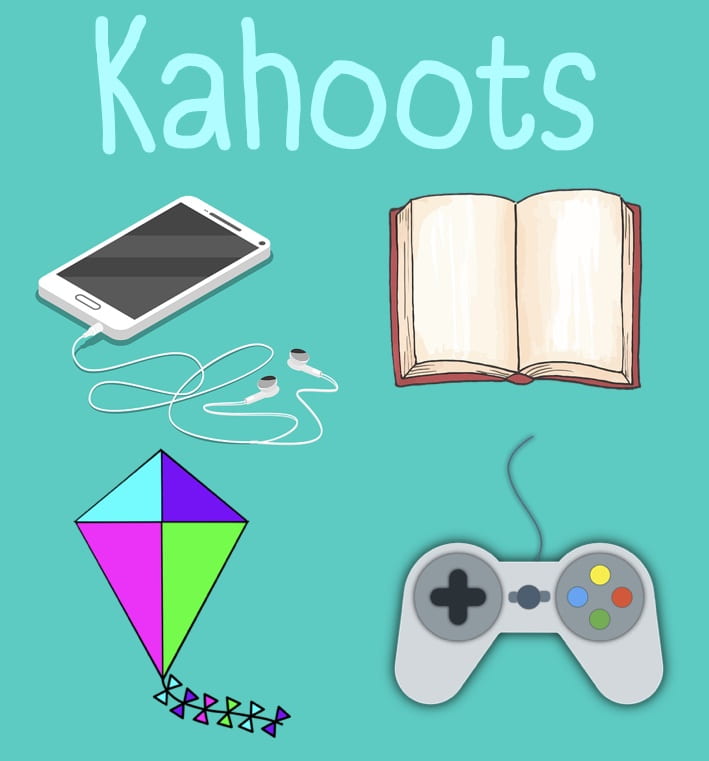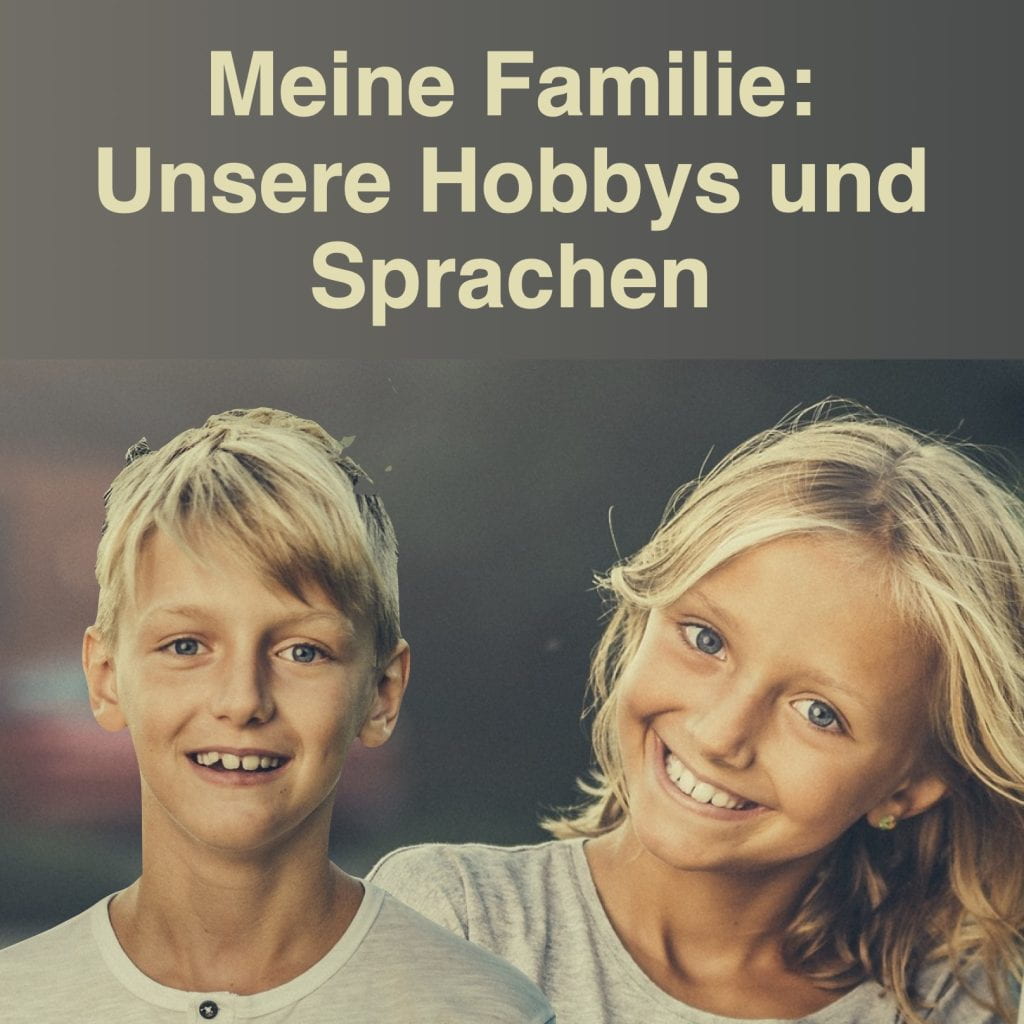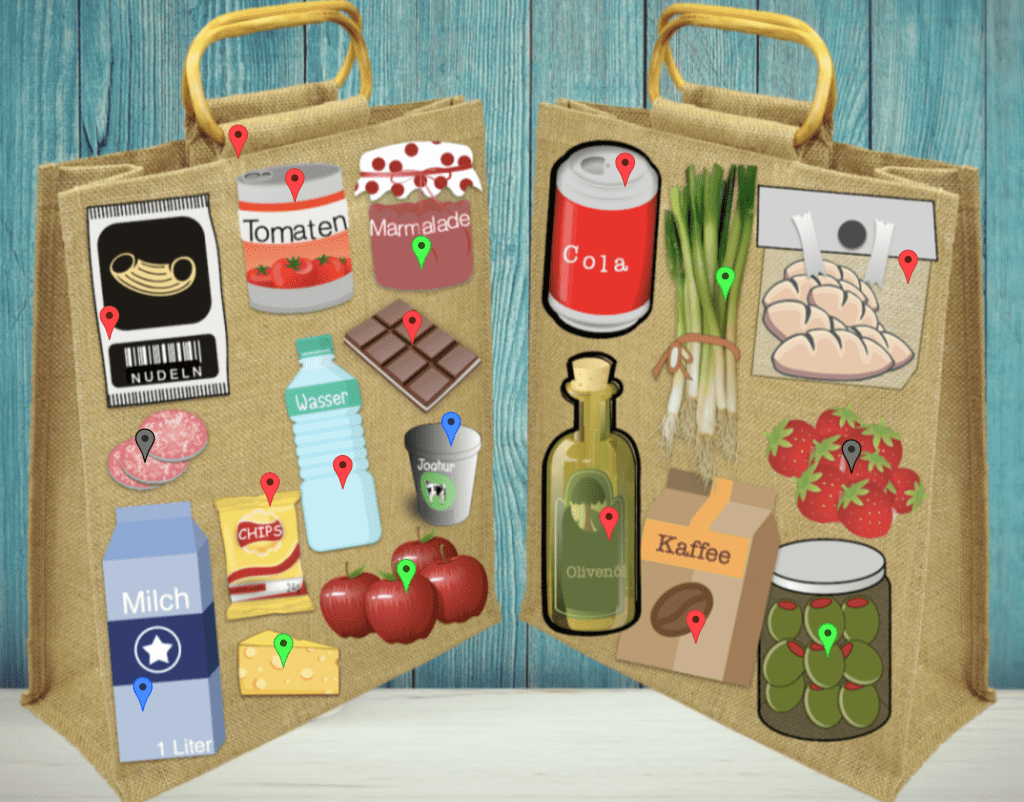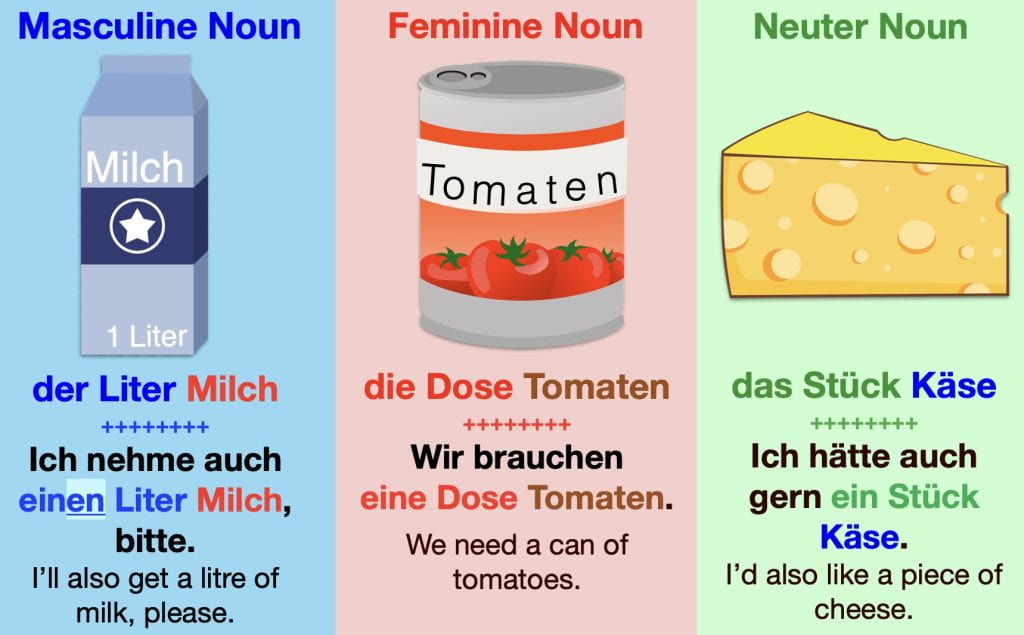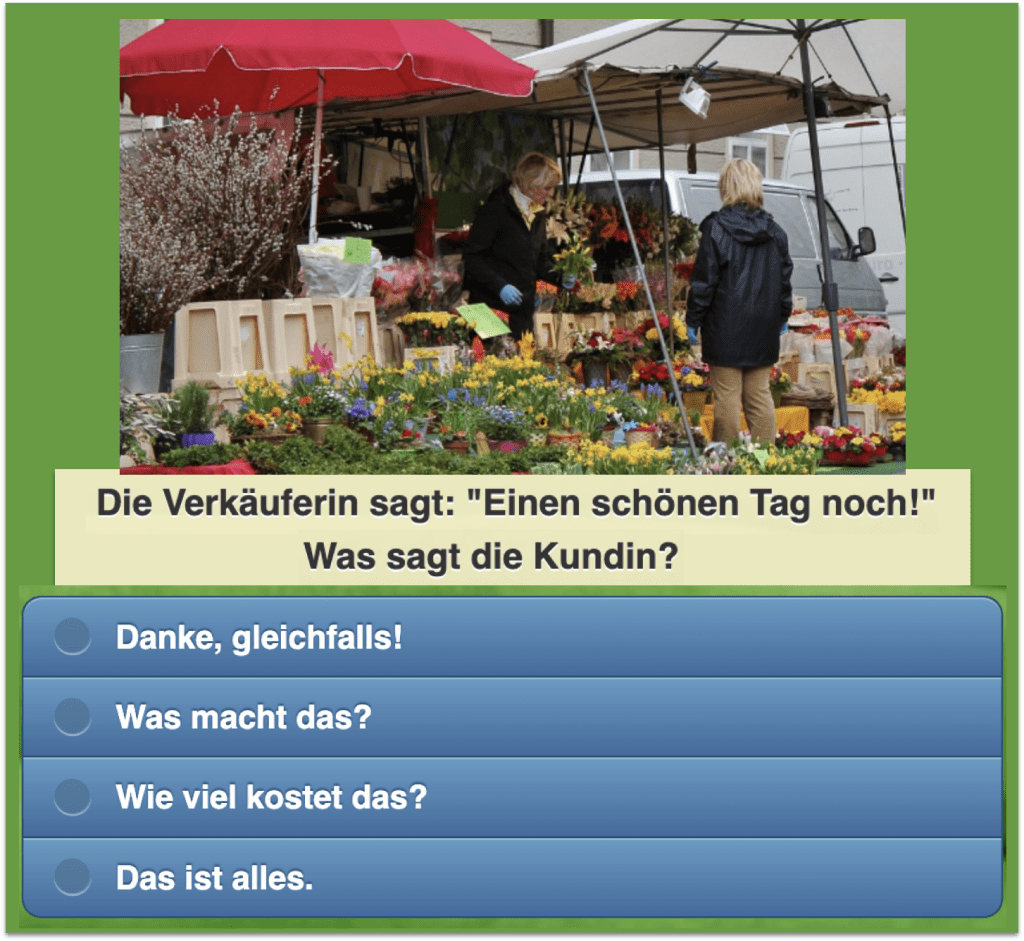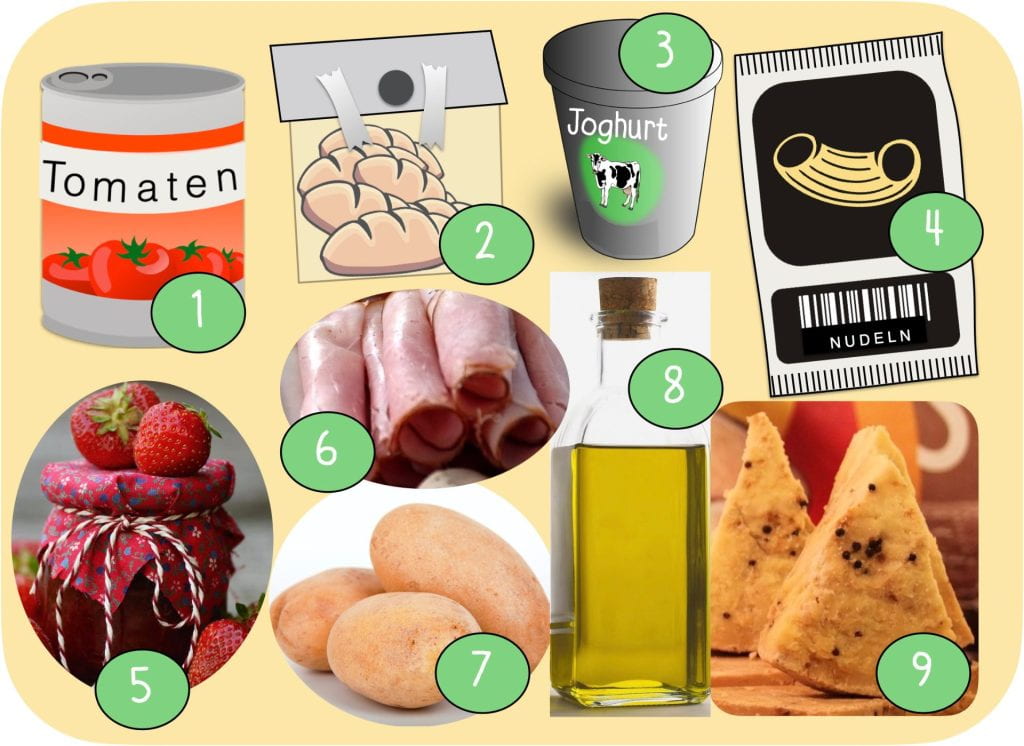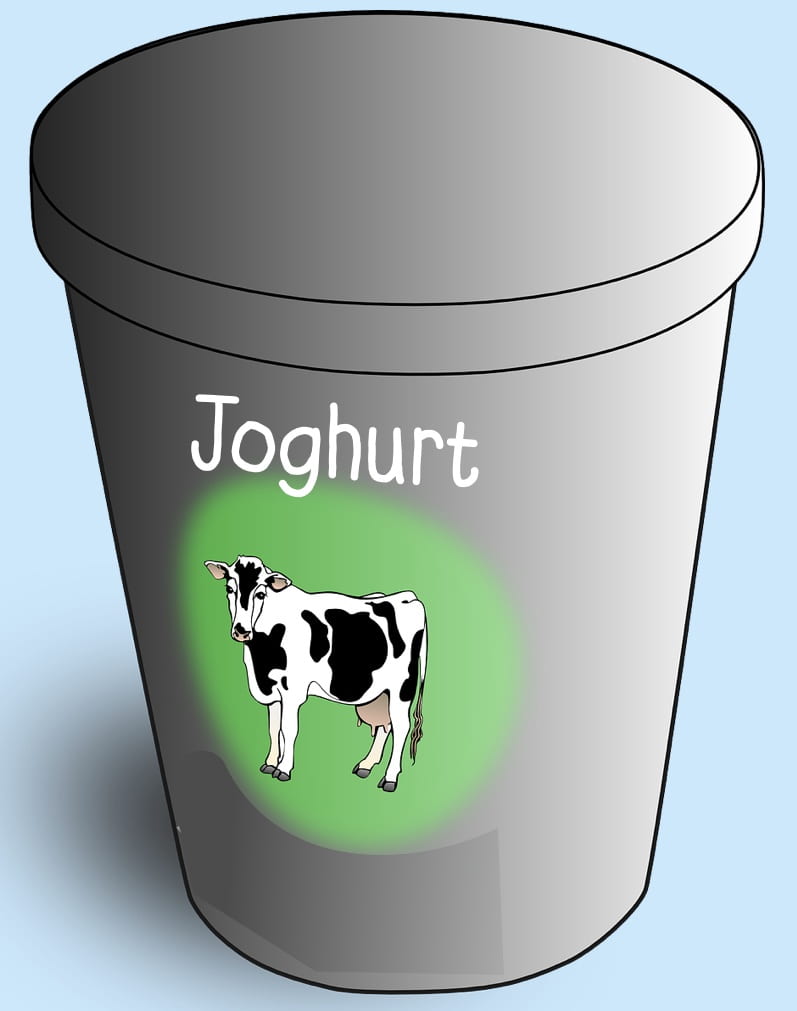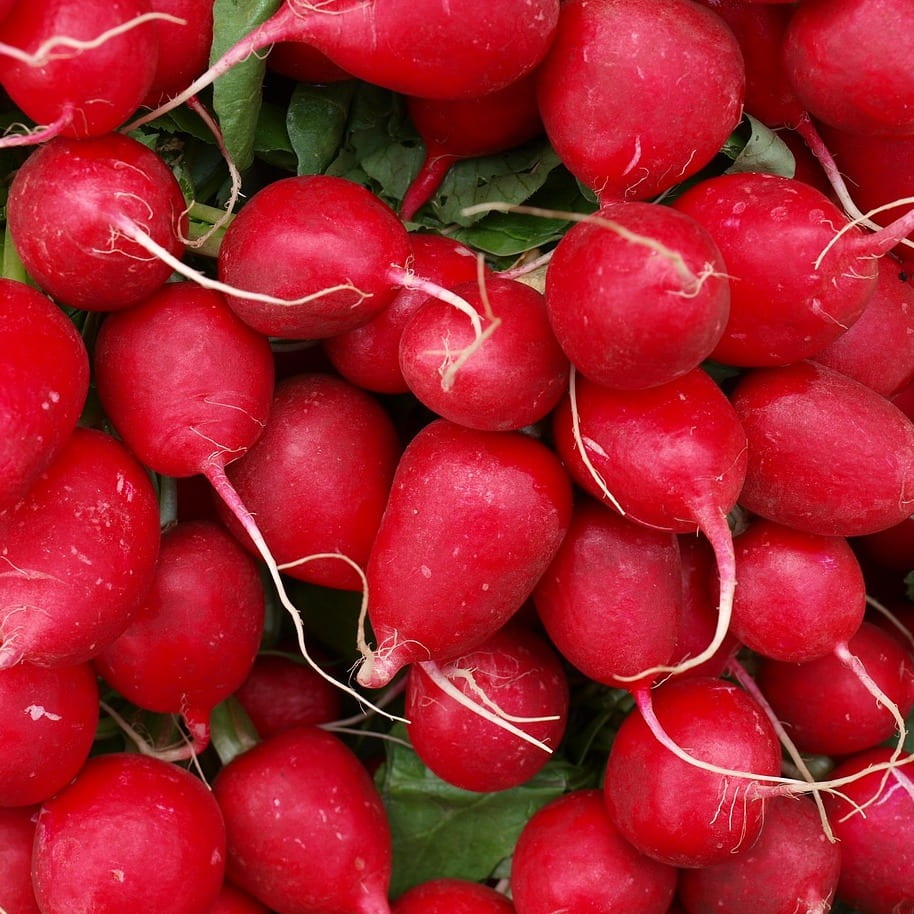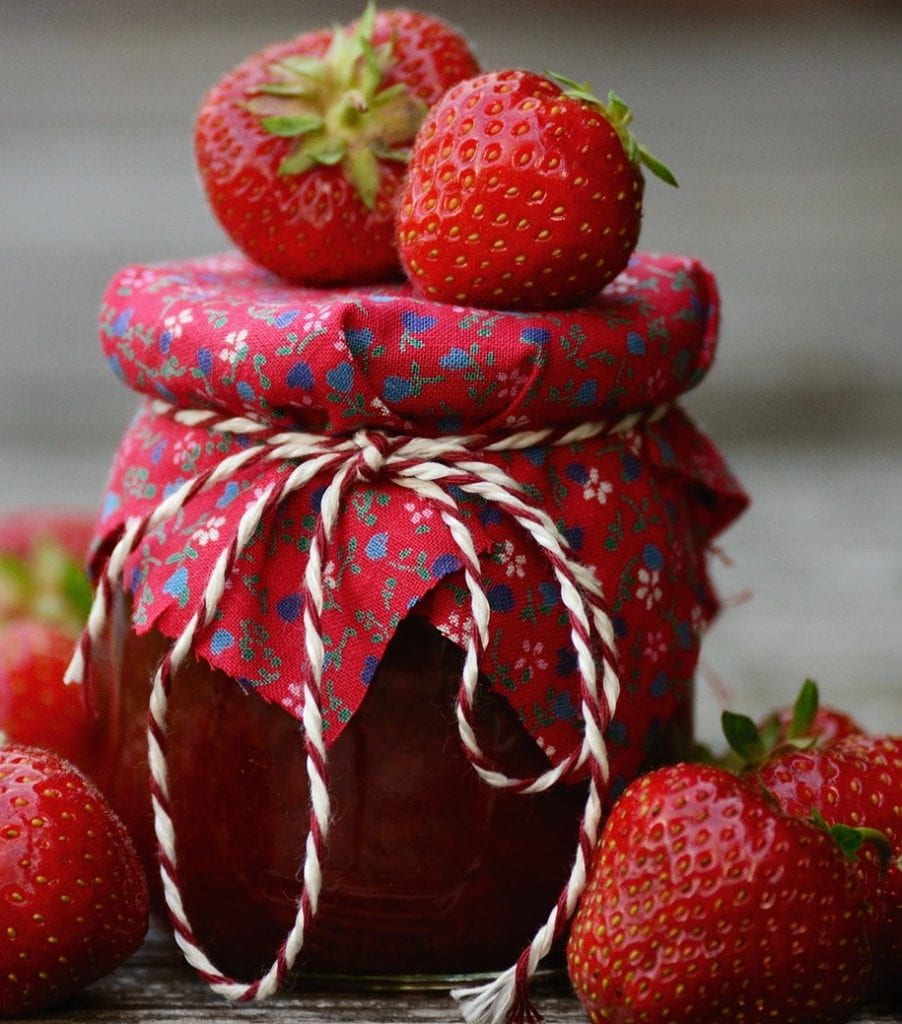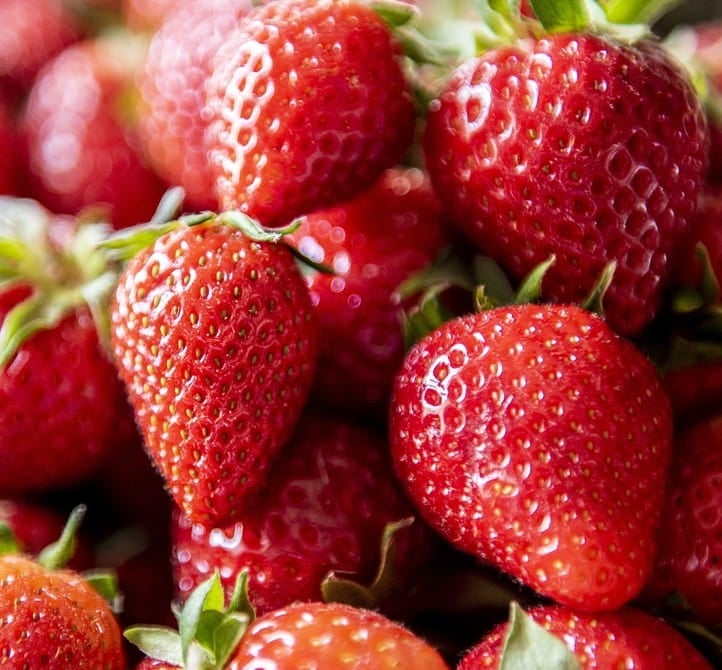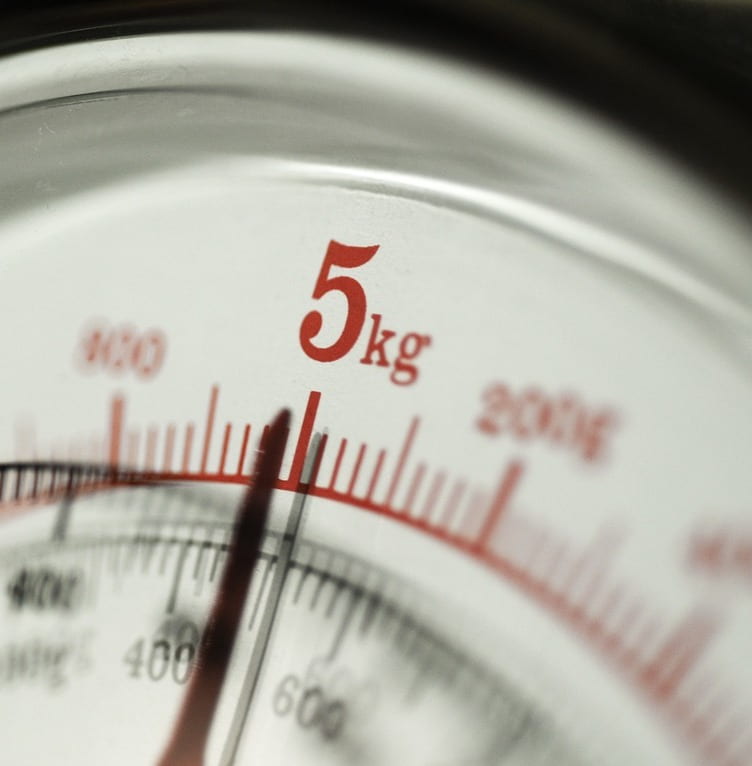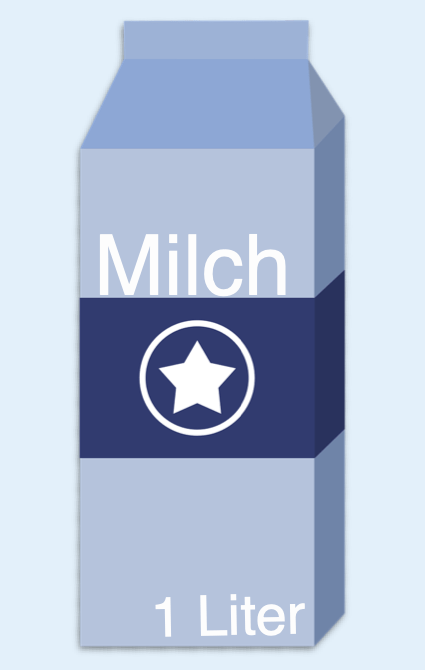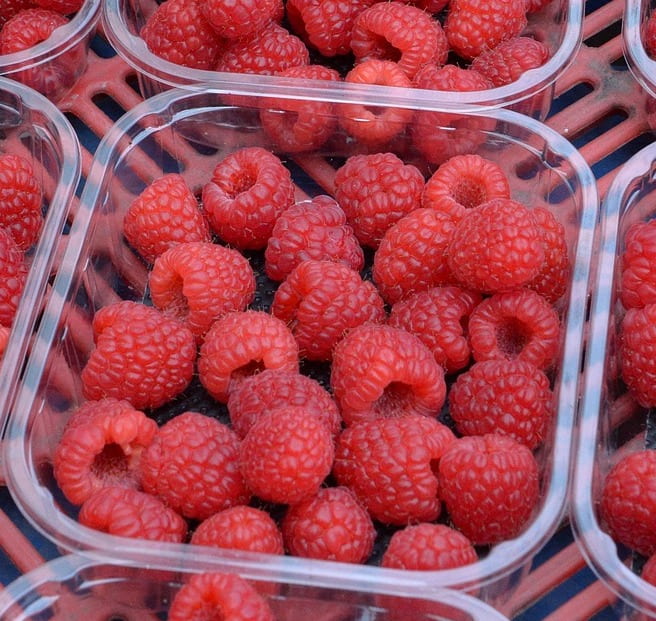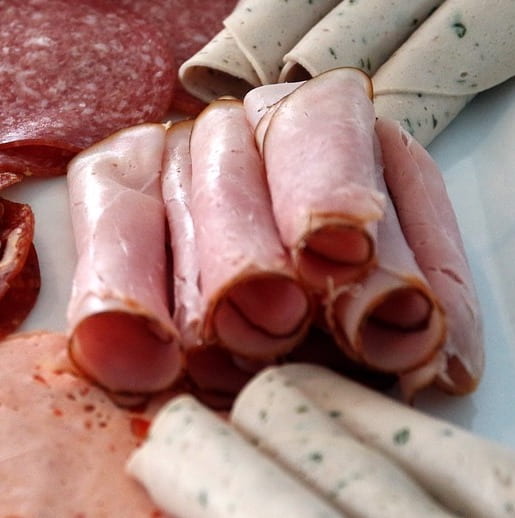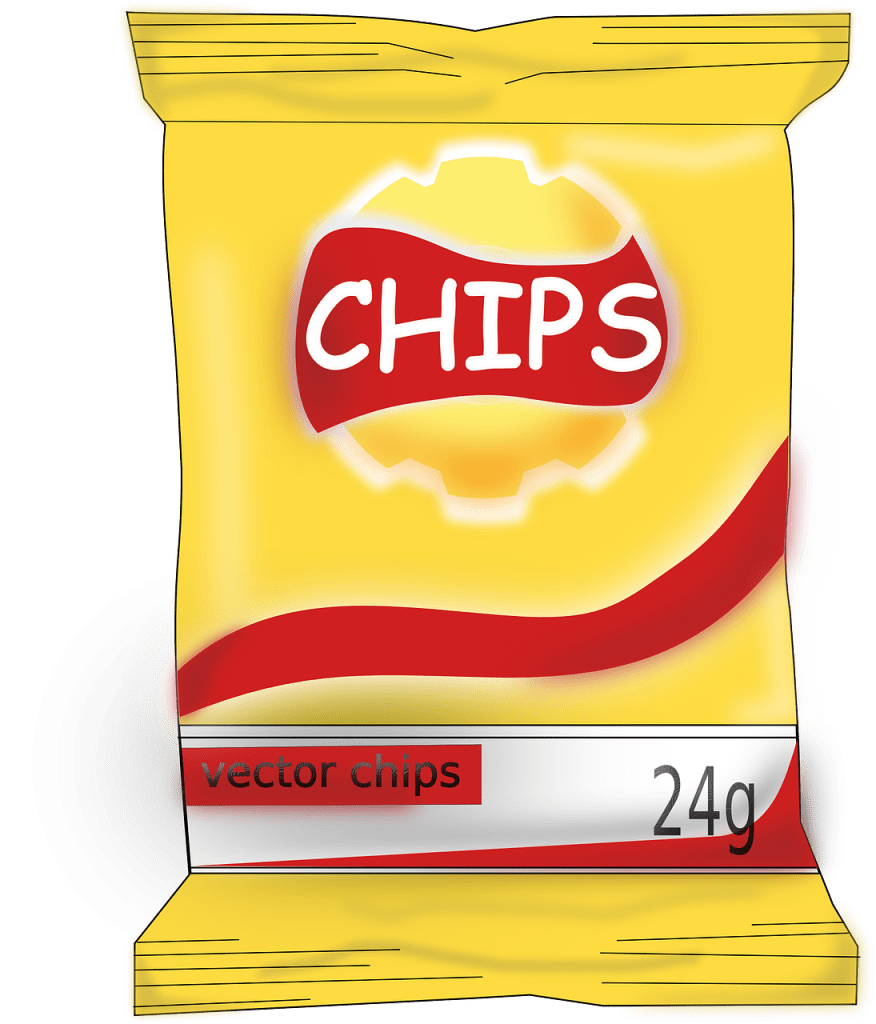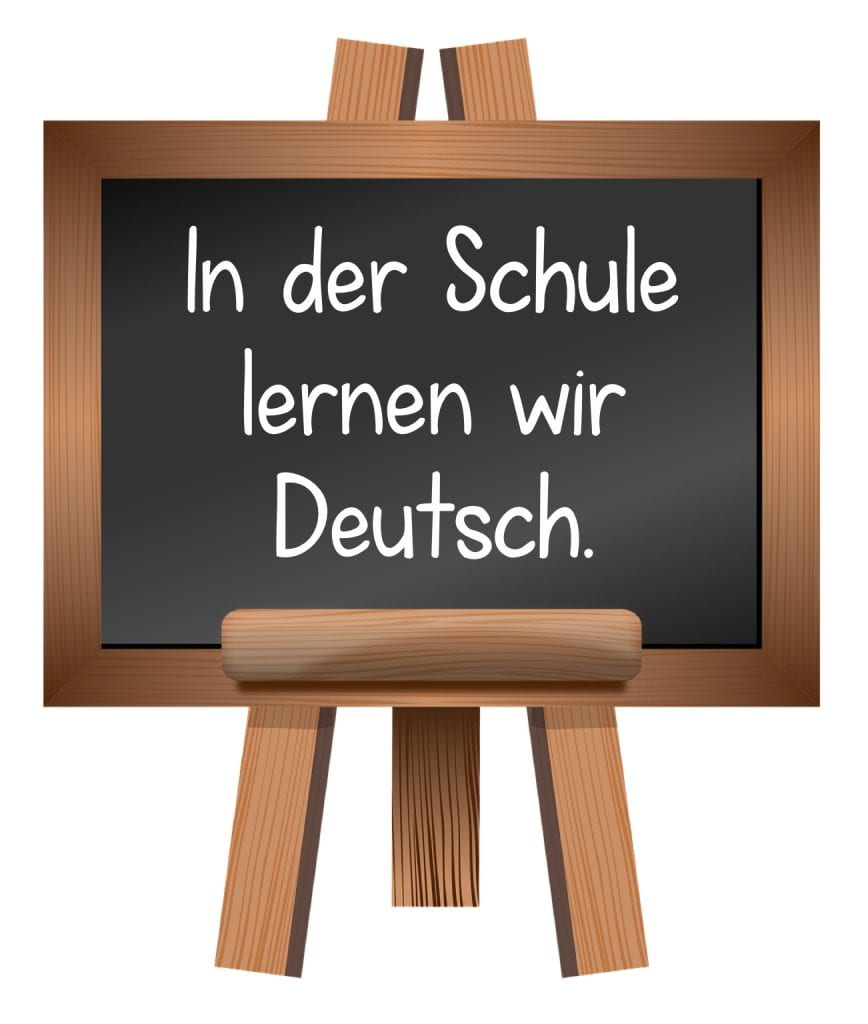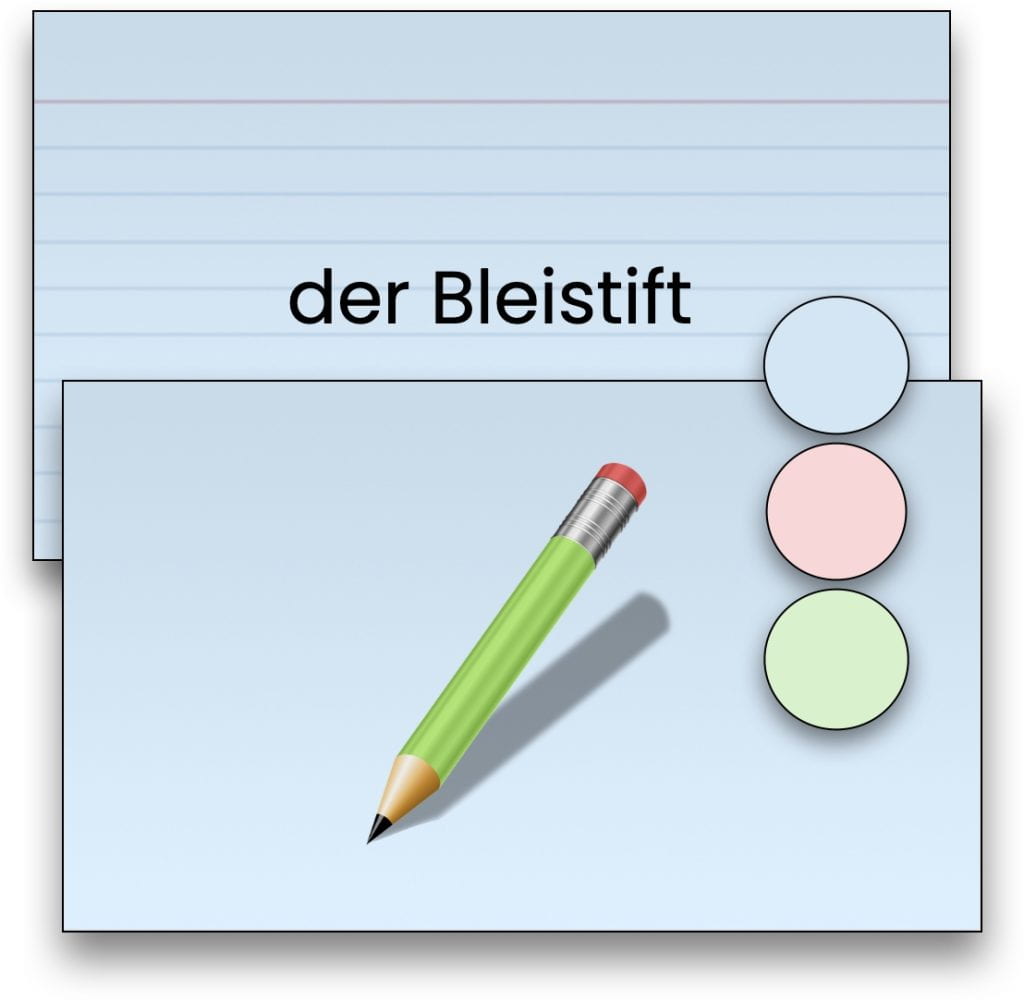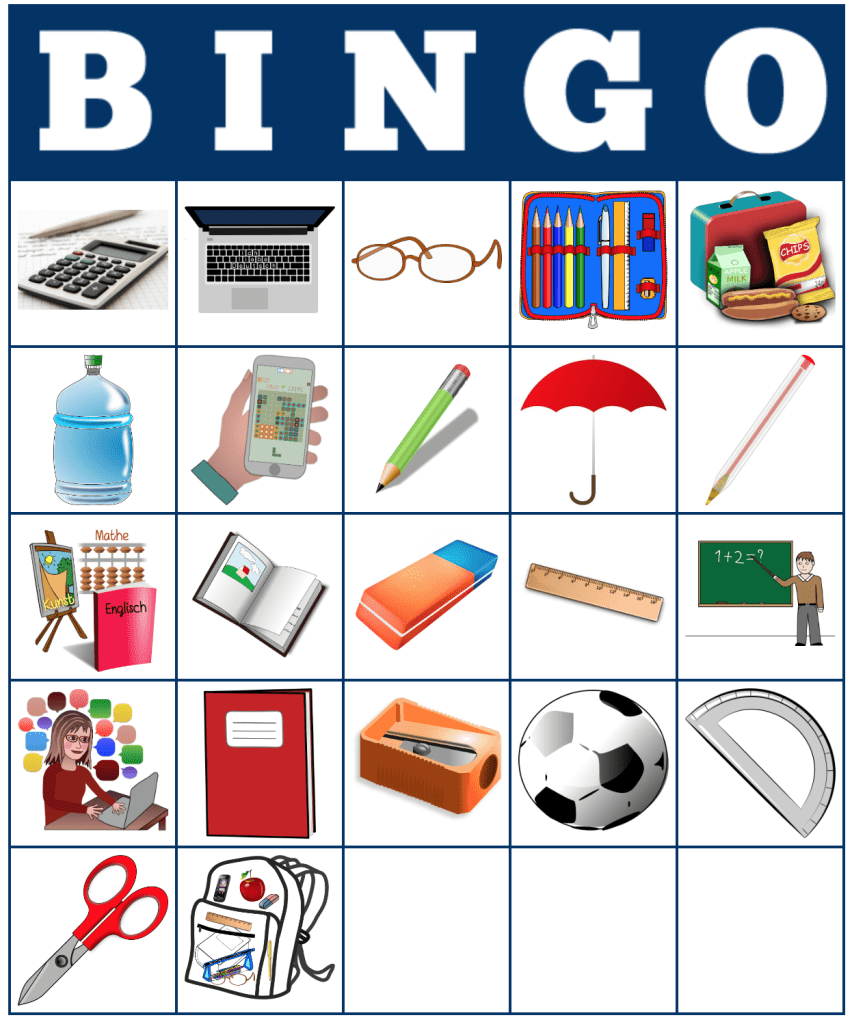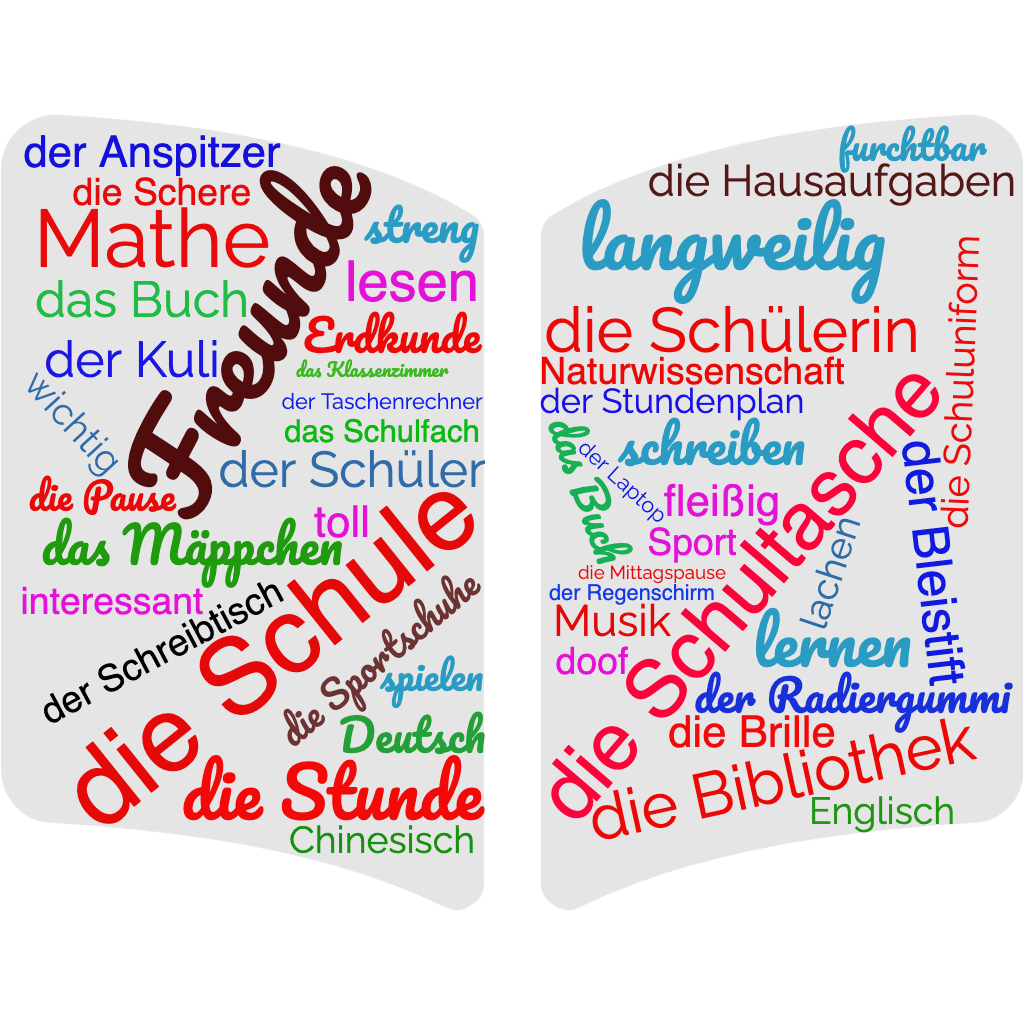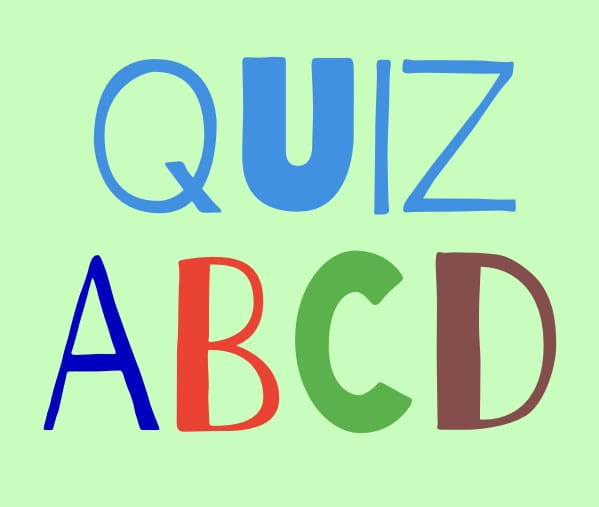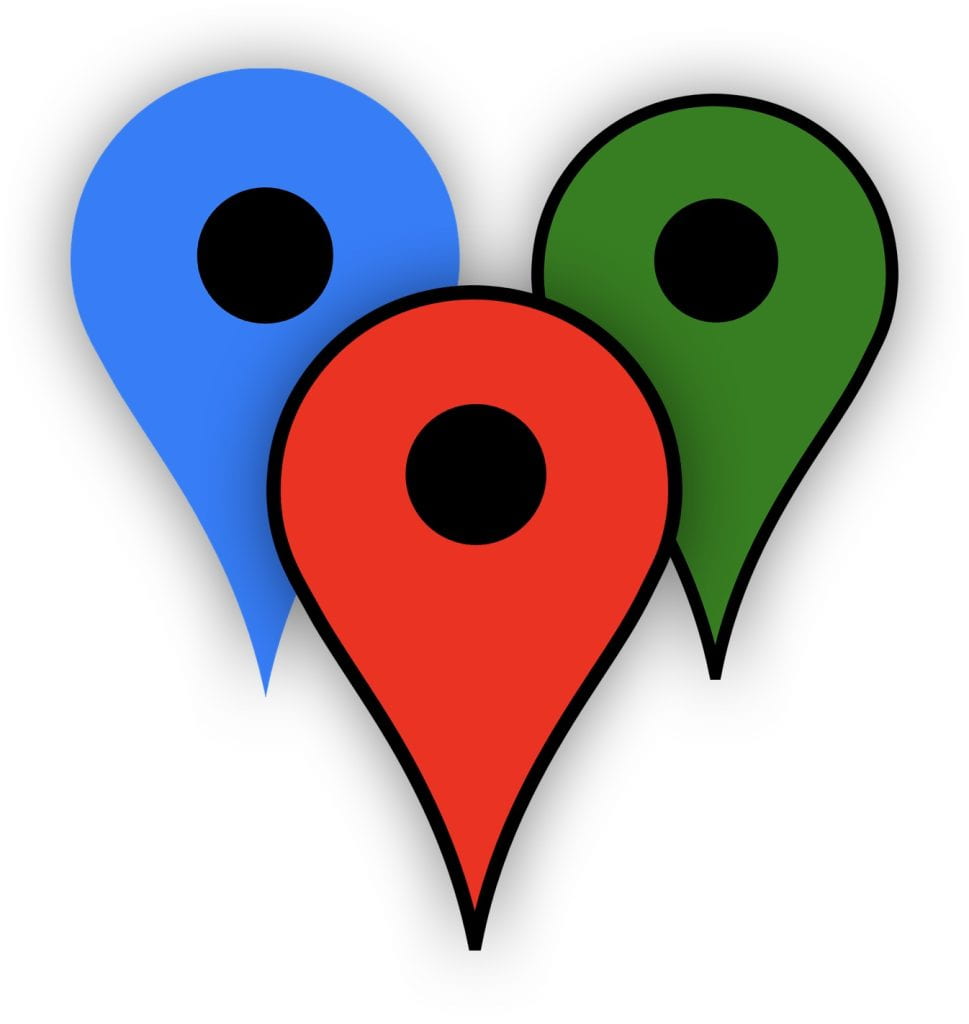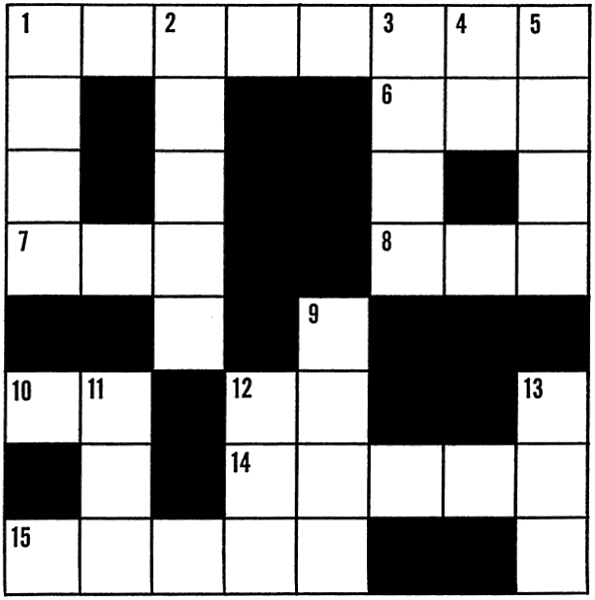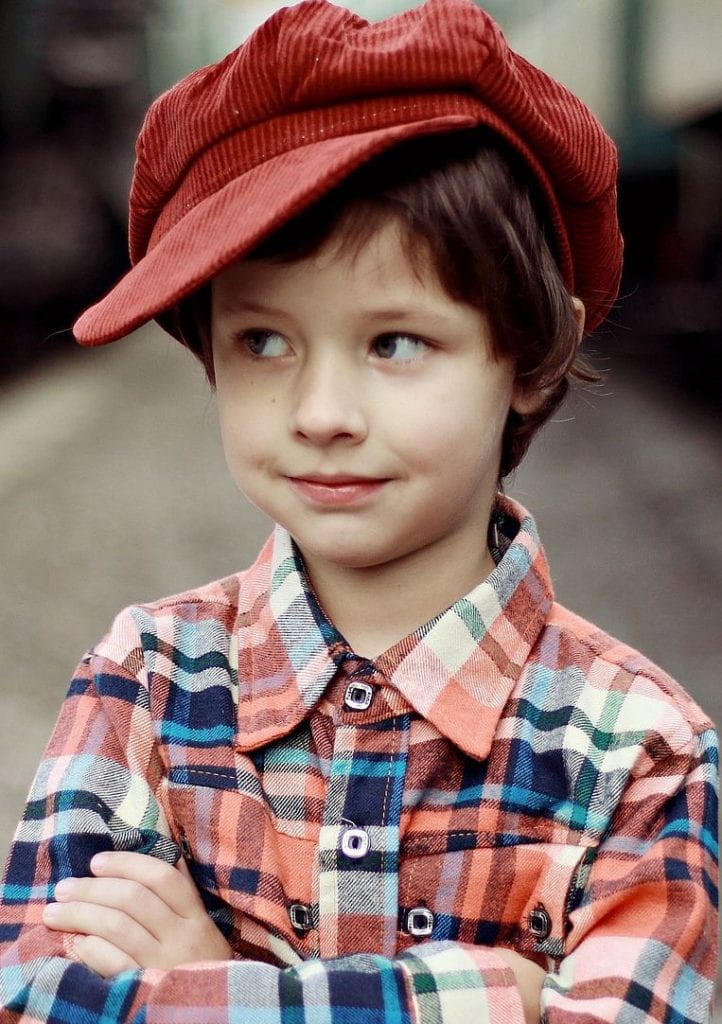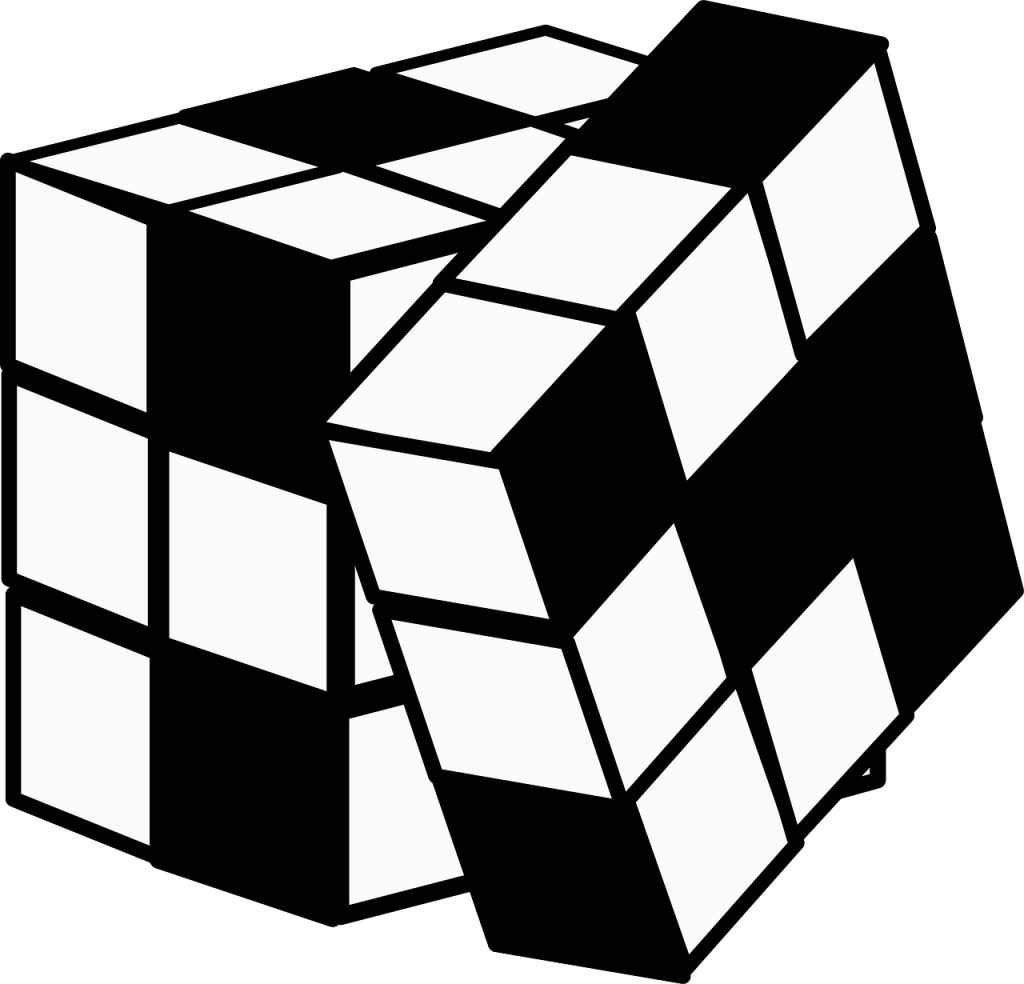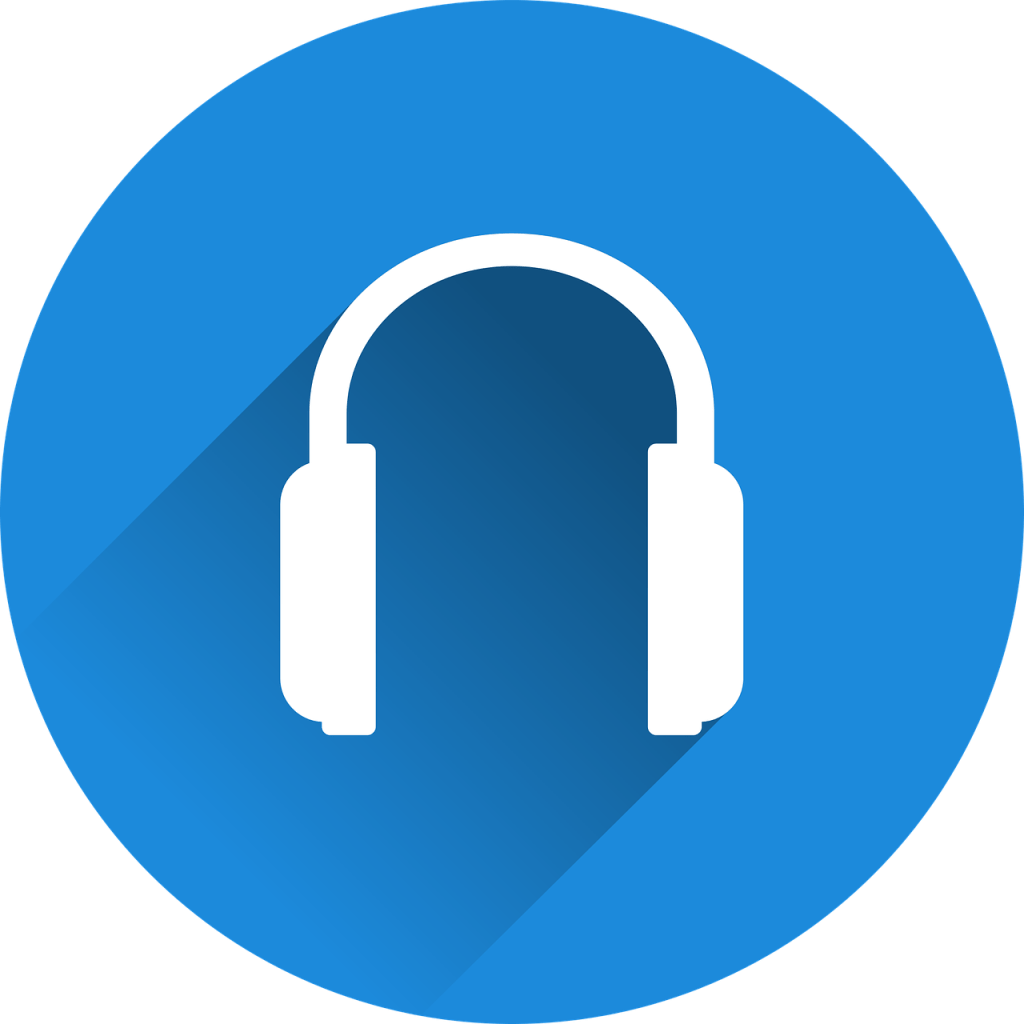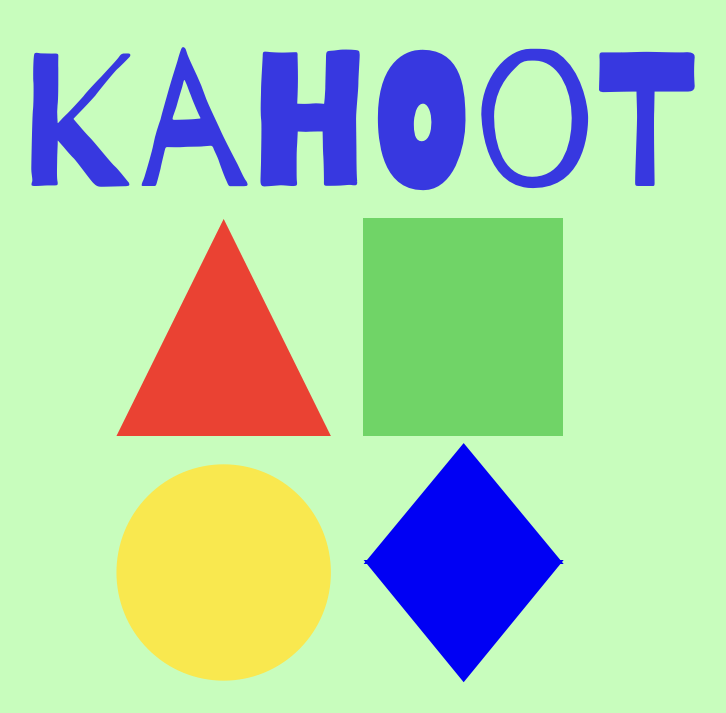Everyday Life 🌄🌆
Published by Roslyn Green in March 2023
The chores, frenetic activity and relaxed moments of everyday life can be summed up with a range of infinitive expressions. Each one can then be turned into sentences in the present, future or perfect tense.
Below is a list of essential expressions for getting through the day in German, followed by three quizzes, including an audio quiz about a typical challenging day.
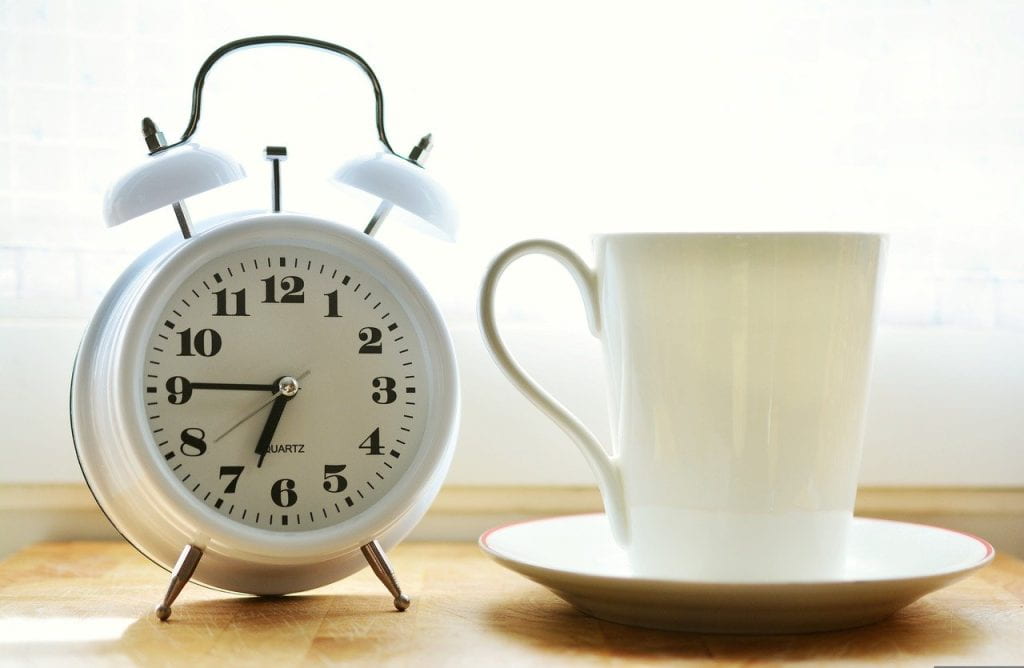
- der Alltag – daily life
- Manchmal möchte ich einfach dem Alltag entfliehen. → Sometimes I just want to escape from everyday reality.
- das Alltagsleben – day-to-day life
- der Tagesablauf – daily routine
Bildlexikon 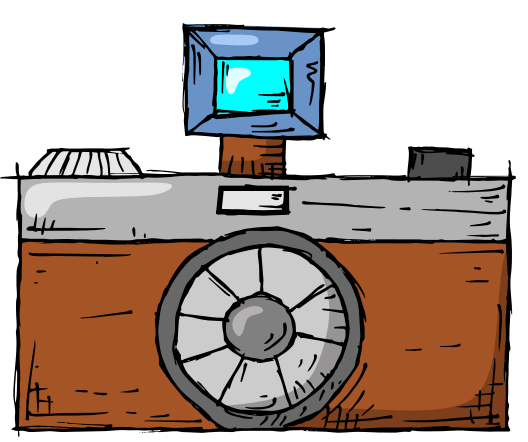
Infinitive Verbs and Expressions to Describe Everyday Life

- aufwachen → to wake up (perfect: sein)
- früh aufstehen → to get up early (perfect: sein)
- ausschlafen → to sleep in
- aus dem Bett springen → jump out of bed (perfect: sein)
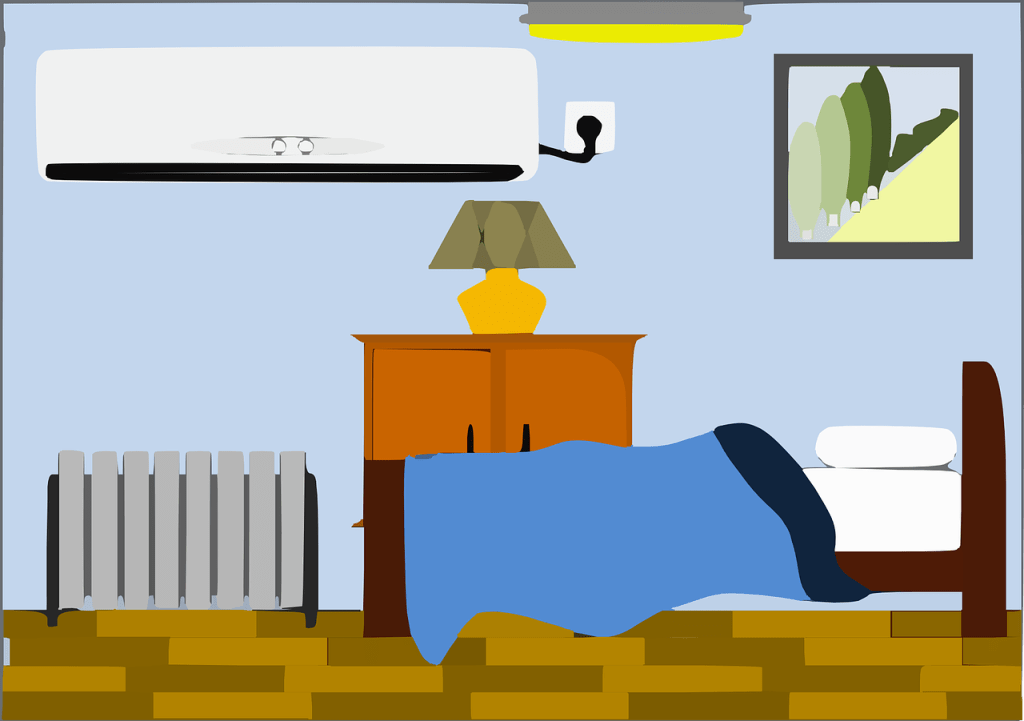
- das Bett machen → to make the bed
- die alten Bettlaken ausziehen → to take off the used sheets
- das Bett frisch beziehen → to put clean sheets on the bed

- (einen) Tee / Kaffee kochen oder machen → to make tea
- Tee mit einem Teebeutel zubereiten → to make tea with a tea bag
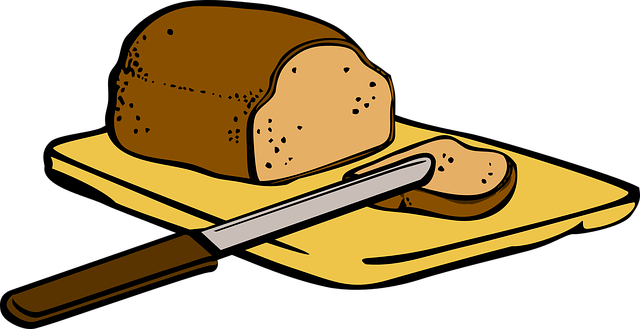
- frühstücken → to have breakfast
- ausgiebig frühstücken → to have a substantial breakfast
- etwas zum Frühstück essen → to eat something for breakfast
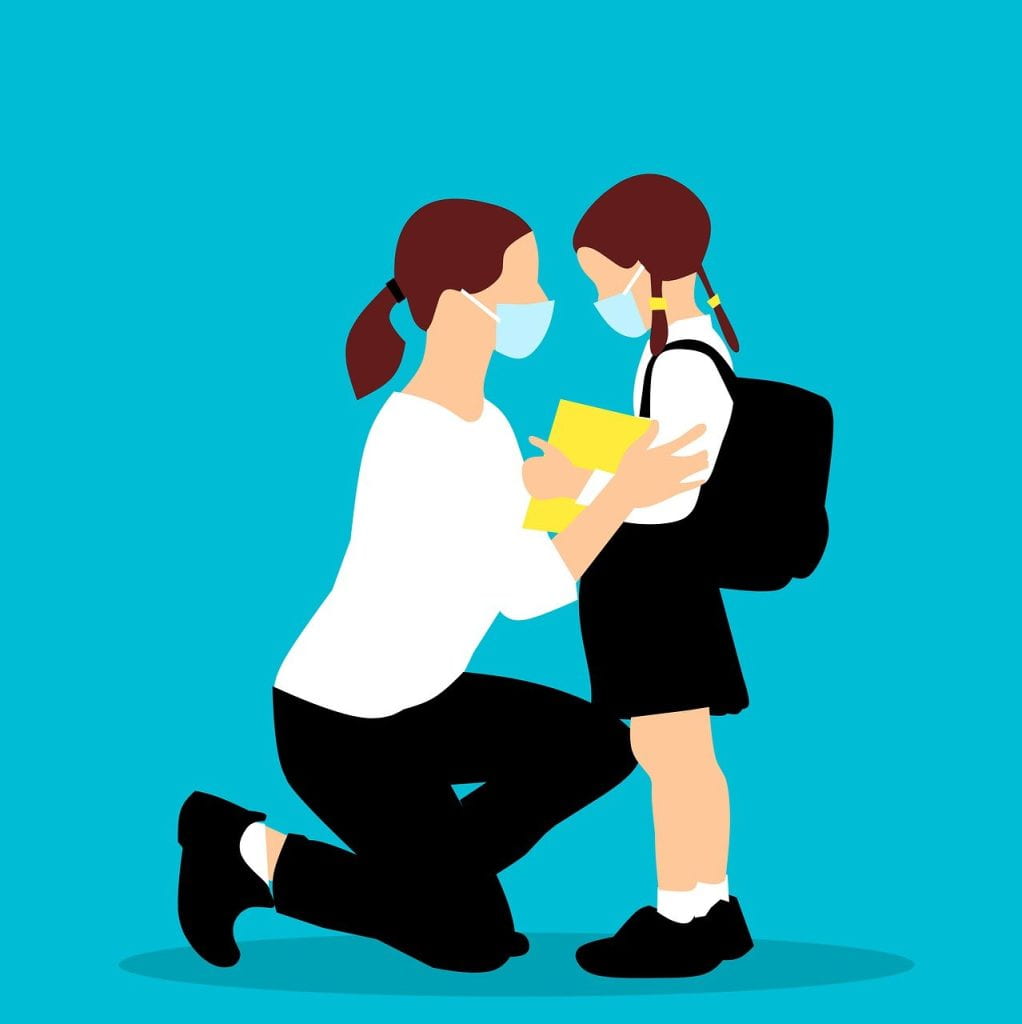
- zur Schule gehen → to go to school
- in den Unterricht gehen → to go to class
- zur Arbeit gehen → to go to work
- an einem Projekt arbeiten → to work on a project
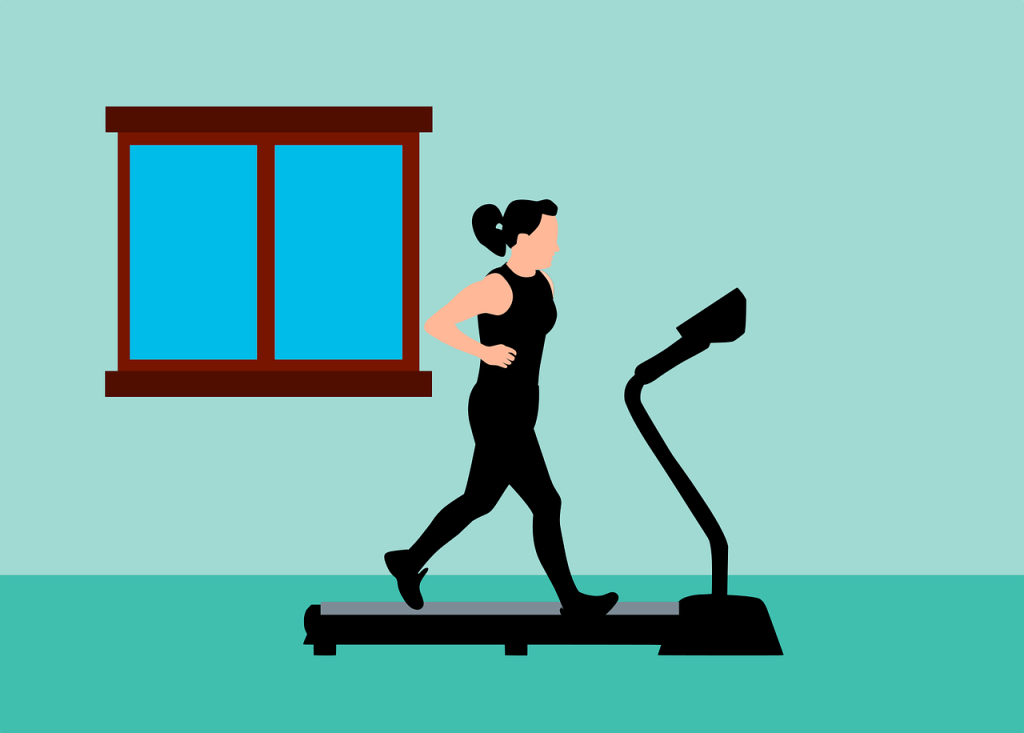
- sich fit halten → to keep oneself fit
- fit bleiben → stay fit
- ins Fitnessstudio gehen → to go to the gym

- einkaufen gehen → to go shopping
- zum / in den Supermarkt gehen → to go to the supermarket
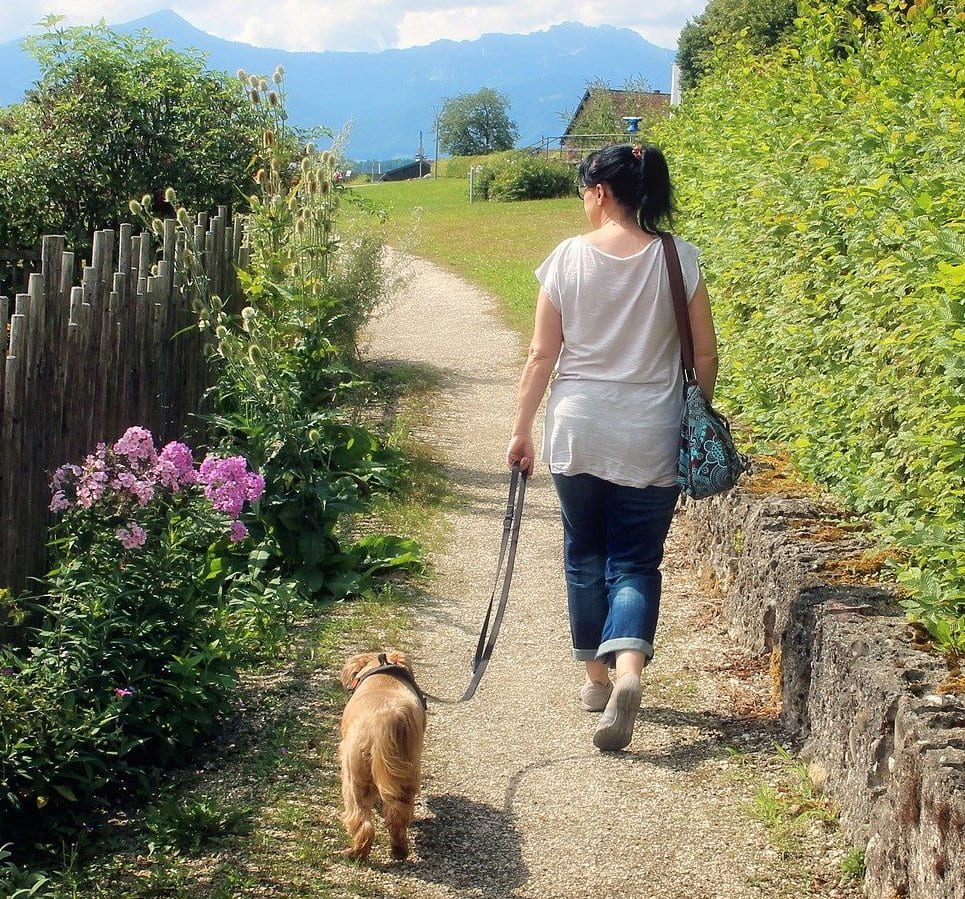
- mit dem Hund spazieren gehen → to take the dog for a walk
- Gassi gehen / mit dem Hund Gassi gehen → (colloquial: to take the dog for a walk)

- im Garten arbeiten → to work in the garden
- Samen in ein Gartenbeet pflanzen → to plant seeds in a garden bed
- den Rasen mähen → to mow the lawn

- sich mit Freunden treffen → to meet with friends
- auf einen Kaffee gehen | einen Kaffee trinken gehen → to go out for a coffee

- ein Zimmer abstauben, aufräumen, staubsaugen – to dust, tidy, vacuum a room
- den Müll rausbringen, hinunterbringen → to take out the rubbish
- die Wäsche waschen, aufhängen → do the laundry, hang out the washing
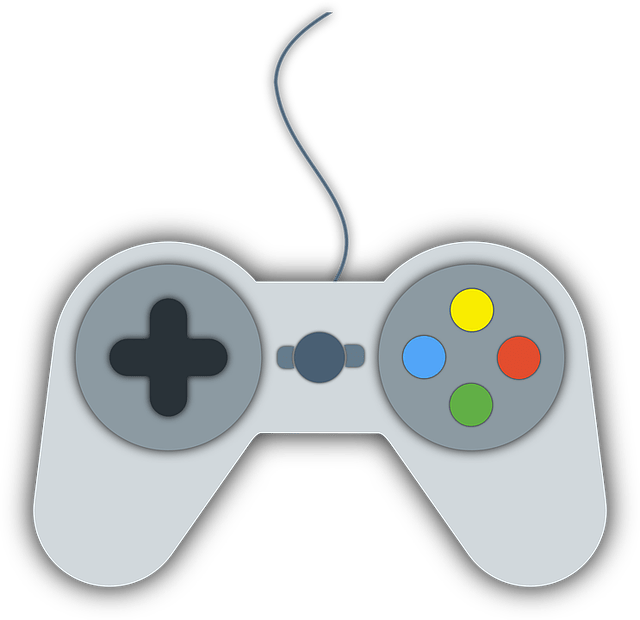
- Videospiele spielen → to play video games
- im Internet surfen → to surf on the internet
- mit dem Handy spielen → play with/on your mobile
- auf TikTok/YouTube gehen → to go on TikTok/YouTube
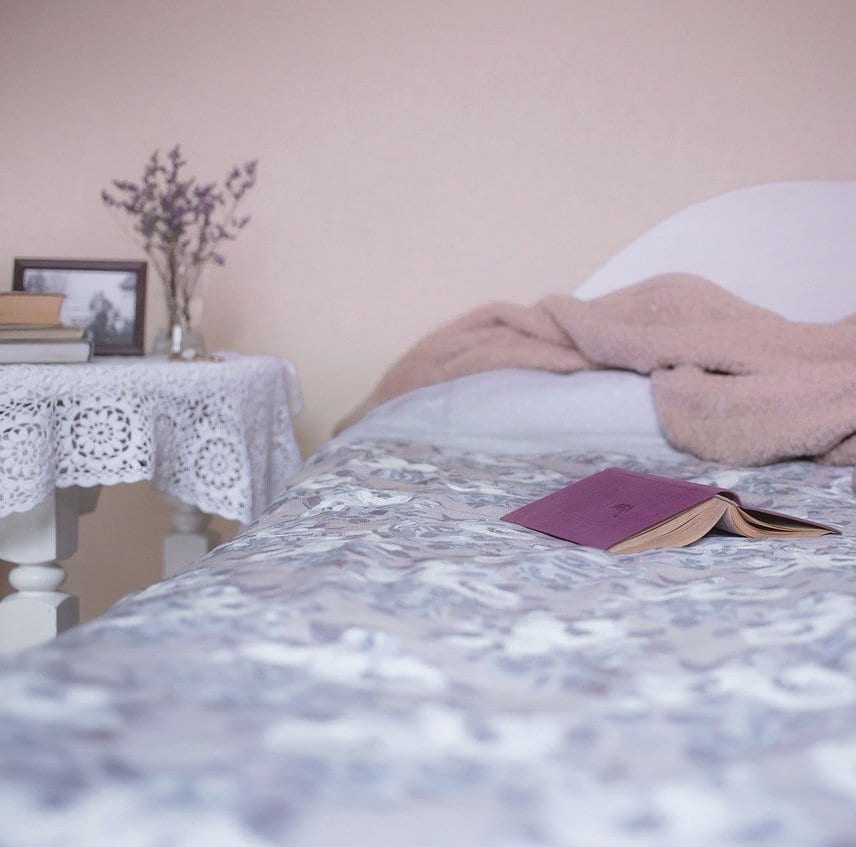
- ins Bett gehen → to go to bed
- vor dem Schlafengehen lesen → to read before going to sleep
Turning Infinitive Expressions into Four Types of Sentences
Here are four sentence patterns, each based on an expression above. Try the second quiz below to practise each of these constructions in order.
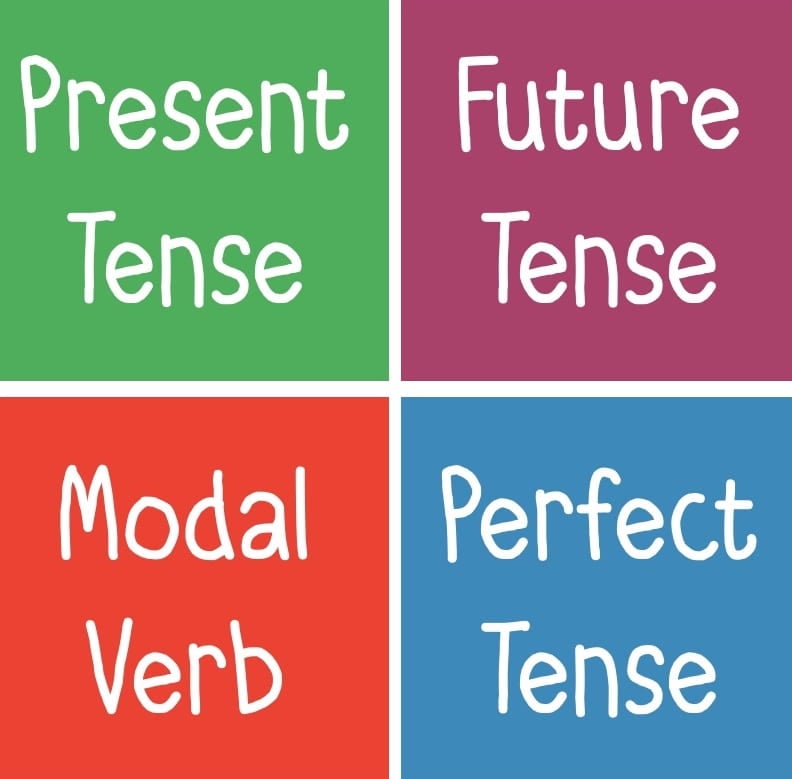
- Present: Jede Woche bringt er den Müll raus.
- Future: Morgen werde ich früh aus dem Bett springen, ehrlich!
- Modal Verb: Möchtet ihr auf einen Kaffee gehen?
- Perfect: Ich habe die ganze Nacht Videospiele gespielt.
Online Activities

Multiple Choice Quiz: Various Sentences About Everyday Life

Quiz: Four Sentence Patterns for Talking About Everyday Life
Paper Version of Quiz: Worksheet – Alltag: Four Types of Sentences → This worksheet also suggests a brief extension activity.

Audio Quiz: Mein Alltag: Ein typischer Tag 
Podcast Episode:
